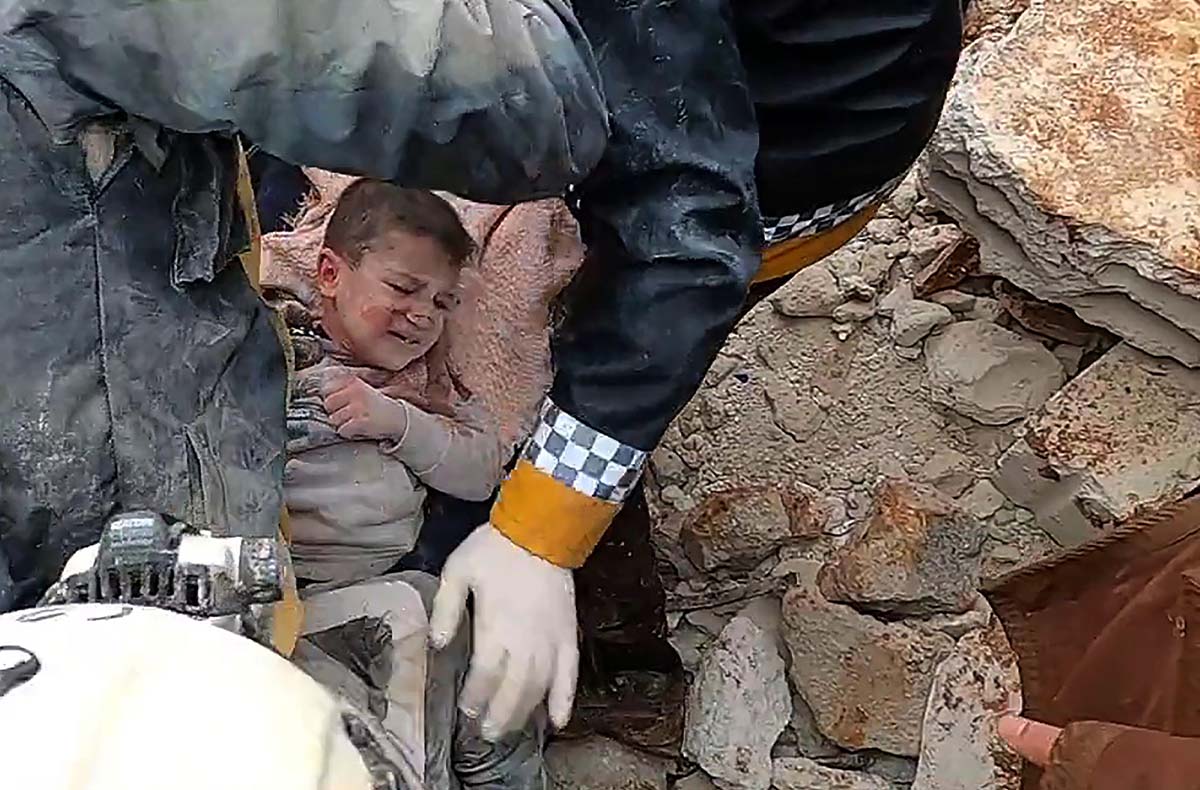
The early morning earthquake that struck Northwestern/Northeastern Syria and Turkey on Monday, February 6, had devastating consequences, with over 11,000 killed, tens of thousands injured, and countless others in dire need of assistance.The earthquake came in two waves, one in the early morning and the second in the afternoon, causing widespread destruction and leaving people taking to the streets in search of shelter and assistance. While the need for humanitarian assistance is crucial for the people in these affected areas, due to political conditions, Syria remains subordinated in aid efforts. The sanctions on Syria, imposed on holding the regime accountable, are having a detrimental impact on the civilian population and contributing to their already dire economic situation.
The humanitarian crisis in the region is exacerbated by the international community’s actions—or lack thereof. This includes cutting supply lines and banning investment projects monopolized by regime-related persons, but most importantly, restricting humanitarian assistance to the regime’s institutions.
Assad’s captagon empire, fueled by the sale of illegal amphetamine, provides him with enough funds to carry on breaking international law. According to the Captagon Act of the U.S. Congress, Assad benefits an estimated $5.7 Billion per annum from the drug trade—with some experts suggesting that, in reality, this figure could be as much as $30 Billion annually.
In the significantly impacted areas of the demographically-changed Afrin and the Assad-controlled Aleppo, the long years of conflict have left people with little more than two bricks put together as a shelter. Now, even that has been taken away from them.
The earthquake has been described as a “hammer-blow” for the internally displaced persons (IDPs) of Syria: reports of thousands of victims are emerging, with the exact number unknown as rescue missions are still ongoing. People in the region are in dire need of immediate assistance, but many fear aid sent to the country won’t reach those who need it, instead winding up in the hands of mainly regime-controlled organizations or NGOs more interested in their own gain than humanitarian causes.
The Kurdish Red Crescent is doing what it can with its limited capacity to assist civilians, providing tents, food, and heating materials to those in need. Meanwhile, in Aleppo, with its urban buildings, the earthquake has had a significant impact, leaving people seeking refuge in parks.
Political turmoil in Syria has worsened since the conflict in Ukraine, with increased obstacles in delivering aid, building long-term resilience, and establishing functioning emergency response mechanisms. The lists of catastrophes in Syria are endless, but they all have politics at their core. It is time for the international community to consider the people of the region as equal human beings and provide the support they need. Yet due to the lack of international recognition of the Autonomous Administration of North and East Syria (AANES), it remains an isolated non-state actor, neglected by the international state sphere.
The AANES, or Rojava, has a population of several million with progressive democratic aspirations. Arabs, Kurds, Syriacs, Turkmens, Armenians, and Chechens came together to establish this entity of governance as a realistic vision for the future of Syria and its diverse culture.
The continuation of this critical humanitarian situation raises the alarm of security concerns. The AANES and its internal security units continue to guard and provide for the al-Hol camp of ISIS’s 20,000 foreign fighters’ families. There, children are raised amongst extremist mothers who have organized their ranks in the camp and established mini-ISIS units there, carrying out executions, smuggling weapons, digging tunnels, and attempting to escape.
One must not forget about the case of the nearly 12,000 ISIS fighter detainees in AANES’s detention centers. Their trial process is still pending because the countries of the foreign fighters’ origin have refused to repatriate their citizens and try them. The attack on Al-Hasakah Sinaa prison in January 2022 showed how dangerous the escape of these detainees could be. Efforts must be put to establish an international tribunal system in North and East Syria to hold these people accountable for their crimes.
The region of North and East Syria lacks any humanitarian corridors due to the Russian veto on the operation of the al-Yaroubya border crossing with Iraq, making it even more imperative that other countries intervene in support of these areas. It is time for the world to step up and provide the necessary assistance to those impacted by the earthquake and the ongoing conflict in Syria. This horrible natural disaster only highlights the greater tragedy of how the international community has failed to act decisively and compassionately to restore peaceful life for those in Syria. We cannot afford to remain on the sidelines any longer.